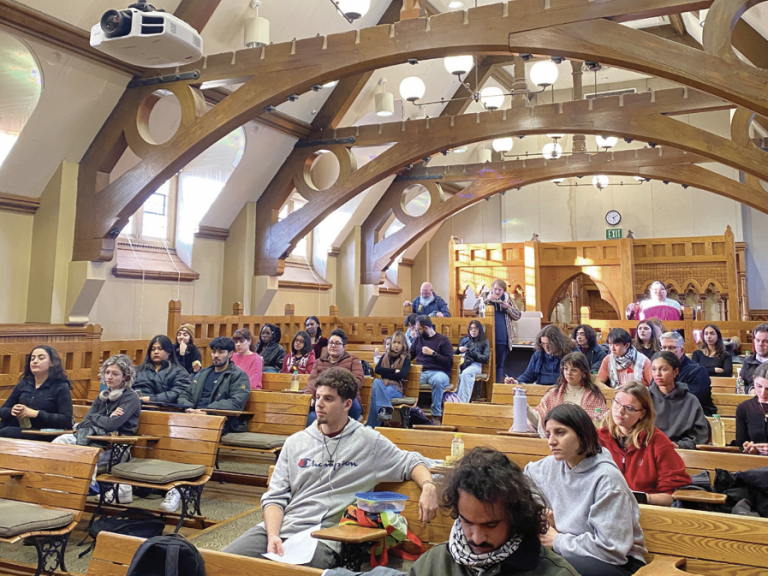Jack P. Carroll ’24
News Editor
President of the College Joanne Berger-Sweeney outlined a list of initiatives that were developed by the “President’s Commission for Trinity’s Future” to improve the college’s operations, campus life, and rankings in an email addressed to Trinity College community members on Wednesday, Dec. 16.
Among the top priorities of the President’s Commission, which was comprised of “trustees, students, faculty, staff, and administrators,” are the following initiatives which will begin to be implemented sometime during the spring and summer of 2021:
- Building endowment to support Trinity’s ongoing excellence
- Differentiating Trinity and its value proposition
- Diversifying revenue sources in distinctive, mission-focused ways
- Investing in technology and data analytics to transform and enhance our operations
- Creating a campus climate that is inclusive and welcoming to a diverse community
- Embracing experimental and lifelong learning and professional preparation
In the email, Berger-Sweeney noted that the commission, which was announced in April by the Board of Trustees, met on a weekly basis beginning in May, updated the trustees on its research and inquiry in June, and presented a summary of its work at the October board meeting.
The Commission had previously drawn ire from some community members, including some prominent faculty leadership, over the scope of its authority, its purpose, and its formation, which did not include faculty governance officers. In April, Chair of the Board Cornelia Thornburgh indicated that there would be “more and more opportunities through our existing governance groups, which includes Faculty Conference, PBC, and the Curriculum Committee, to continue to discuss the many issues before us.” Thornburgh added at the time that the Commission’s work will not parallel the work of other committees, stating that “there is absolutely no overlap.”
Berger-Sweeney explained that the commission, during the research and development process, “held three faculty forums, and conducted a stakeholder survey over the summer, seeking input from faculty, staff, cabinet, and the Student Government Association and alumni groups.”
Chief of Staff to the President Jason Rojas did not immediately respond to questions regarding who the “external consultants” were, as well as their contributions to the Commission’s research and developed list of initiatives. Also, it was not clarified how the Commission will transition from “evaluating specific, practicable solutions” to designing the “infrastructure to support institutional innovation” when implementing these efforts.
In addition to improving the college’s operations and campus life, Berger-Sweeney wrote that these initiatives, or “enablers,” should lead to “improvements in college rankings, which play a role in how the college is perceived internally and externally.”
As previously reported in the Tripod, the U.S. News and World Report rankings for 2021 place Trinity at #44 among National Liberal Arts Colleges. The Wall Street Journal/Times Higher Education (WSJ/THE) College rankings for 2021 rank Trinity at #92 among more than 800 universities nationwide. Unlike the U.S. News and World Report, The WSJ/THE does not distinguish between “National Liberal Arts Colleges” and “National Universities.”
Berger-Sweeney further notified the Trinity community that the President’s Commission will present its findings in “small-group discussions, focused on particular topics” starting in early 2021. The commission will proceed to implement its developed plans up to and through Trinity’s bicentennial in 2023.






+ There are no comments
Add yours